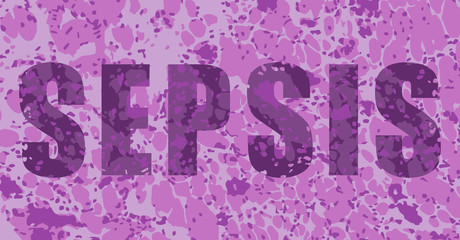'Bad' antibodies leading to sepsis

Removing certain antibodies from a patient’s blood stream may prevent life-threatening bacterial infections from spreading, and could be the key to treating sepsis in some patients.
University of Queensland (UQ) researchers examined how Escherichia coli (E. coli) in the blood stream can trigger sepsis, an extreme and damaging inflammatory response to infection with a high chance of mortality.
“E. coli is the most common cause of urinary tract infections, and in some people, the bacteria can enter and survive in the bloodstream, leading to sepsis,” said UQ Diamantina Institute Senior Research Fellow Dr Timothy Wells.
“For the bacteria to survive, it needs to be resistant to human serum, which is a component of blood similar in composition to blood plasma.”
Antibodies found in human serum normally protect against infection by binding to bacteria, allowing them to be targeted for killing by ‘complement’ proteins.
“We found that 24% of patients with sepsis caused by E. coli had high amounts of antibodies that inhibited that process,” Dr Wells said. “These inhibitory antibodies actually protected the bacteria by binding to them and forming a protective wall around them.
“Our results suggest that in some of the patients, the bacteria would not have been able to survive in the blood without these ‘inhibitory antibodies’ being present.
“The high number of patients with inhibitory antibodies suggests this mechanism of serum resistance for E. coli in sepsis is widespread.”
Dr Wells said that removing inhibitory antibodies from the blood restored its ability to kill bacteria.
“These inhibitory antibodies are not just limited to E. coli. We recently treated two patients with lung infections who also had inhibitory antibodies.
“We used a method called plasmapheresis — when a patient’s blood plasma is removed and replaced — removing the inhibitory antibodies.
“This led to an immediate improvement in their health, so new methods that inactivate or remove these ‘bad’ antibodies may be useful to prevent and treat sepsis.”
The study has been published in mBio.
$1bn vaccine and antivenom manufacturing facility opens
A $1 billion cell-based influenza vaccine and antivenom manufacturing facility has opened in...
National concussion clinical guidelines now available
The first Australia- and New Zealand-specific guidelines for all forms of concussion — from...
Doctors criticise "risky prescribing agenda"
The AMA and RACGP have expressed disappointment in the Pharmacy Board of Australia's...




![[New Zealand] Transform from Security Awareness to a Security Culture: A Vital Shift for SMB Healthcare — Webinar](https://d1v1e13ebw3o15.cloudfront.net/data/89856/wfmedia_thumb/..jpg)
![[Australia] Transform from Security Awareness to a Security Culture: A Vital Shift for SMB Healthcare — Webinar](https://d1v1e13ebw3o15.cloudfront.net/data/89855/wfmedia_thumb/..jpg)



